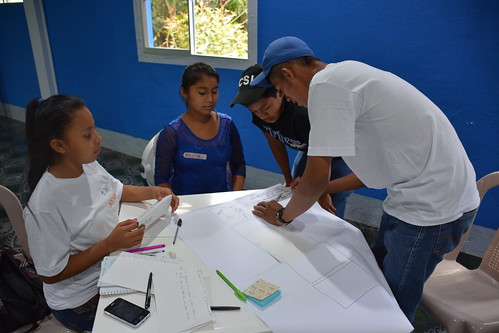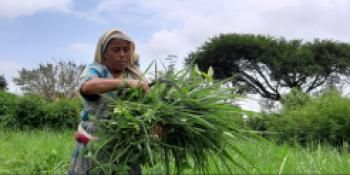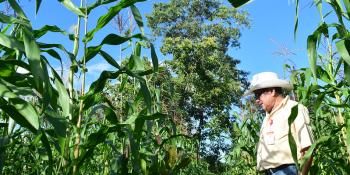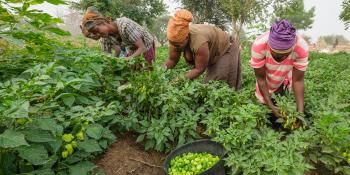Nicaragua: land of lakes, volcanoes and enthusiastic 'chavalos'
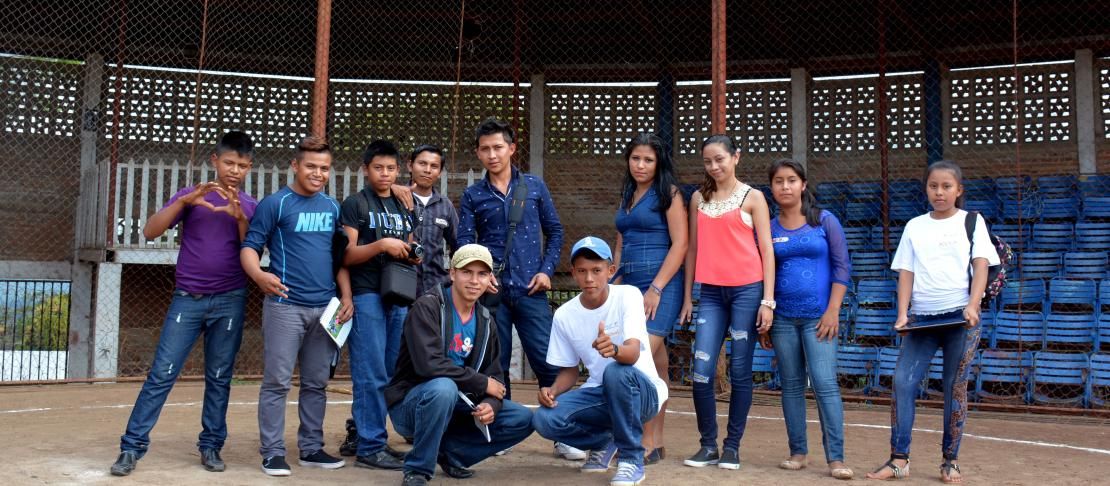
Young farmers from El Tuma-La Dalia Climate-Smart Village in Nicaragua show what makes them proud and how they are adapting to climate change.
At a meeting in the community hall of Wasaka Abajo, one of the 18 districts of El Tuma-La Dalia municipality, young people from different communities gathered to participate in a workshop on photography, video and climate change. The 'chavalos' (common name for young people in Nicaragua), aged between 13 and 22 years, had different motivations to participate: some of them are leaders of youth movements, others have already taken their first steps in social communication, and most of them are from families that are part of the field school of the Climate-Smart Village.
In total, eleven chavalos learned about climate change and audiovisual production, in a three-day workshop held in El Tuma-La Dalia a couple of weeks ago, through practical exercises of elements of photography and video production, along with a talk of sensitization on how climate change affects our lives. This workshop was carried out within the framework of the Climate-Smart Village (CSV) initiative that the CGIAR Research Program on Climate Change, Agriculture and Food Security (CCAFS) is promoting in Latin America.
This workshop was also an opportunity to link farmer's sons to the work that their parents are doing in the field school, where, with the facilitation of CATIE, they have been learning about climate-smart practices and technologies, through household adaptation plans and farm plans. These actions, which seek to have a positive impact on the farmer's livelihoods, will only be sustainable in the long term if the new generations are also engaged in them from an early age.
The first part of the workshop was a talk on climate change: what it is, what it produces and how man's action are accelerating it. This talk aimed to raise youth's awareness about how they can contribute too to climate action. After this, they received a basic lecture about the operation of a camera, as well as the key elements and tips for taking a picture. This theoretical part was combined with practice, using photographic equipment to practice what they learned.
The second day participants learned how to make a video, starting with the script, for which the chavalos was divided into groups to discuss what the best was in their town and what they wanted to record on video. They proposed tourist attractions, like Salto La Empresa, a natural waterfall frequented by the inhabitants and tourists. They also wanted to record the baseball stadium, the so-called "king sport" in Nicaragua and the favorite of young Nicaraguans, among other places.
As El Tuma-La Dalia is a CSV, the young people also wanted to show in their video the main crops they cultivate, such as coffee, cocoa and beans, as well as the climate-smart practices that their parents have learned from the field school, and that are already giving good results.
All the script proposals of the chavalos were consolidated in a storyboard, taking into account all the participants' thoughts, deciding which places will be recorded, as well as the dialogues, transitions and scenes that would be part of the video. Also, the chavalos picked their roles, naming a director, cameramen, actors, sound assitant, assistants and extras.
The shooting of the video started immediatly, and the chavalos were very excited. Although for a moment the rain seemed to be a problem for the production, the enthusiasm for recording and saying "lights, camera, action!" was even greater.
The same night that recordings were completed, the video was edited so that the chavalos could see the results of their work on the last day of the workshop. To be their first time producing a video, the result was quite satisfactory, in spite of the slips and glitches that caused many laughter in the group, and the repetition of several shots.
See the video made by chavalos of El Tuma-La Dalia CSV (Subtitled)
In the end, the chavalos were very proud of the result, and the journey ended with a reflection on the purpose of the workshop; whether the expectations were fulfilled and what commitments they would assume with this new knowledge:
My commitment will be to share with my family and all the people of my village all the knowledge and skills we have gained in this workshop." Eliezer Antonio Gutiérrez, 16 years old (Las Veguitas village)
As a young environmentalist, I'm happy to know that there are people like me who care about our mother earth; My commitment is to continue sharing new knowledge, to integrate more people to the cause and to meet with other young people so that they also know and learn what we learned." Joel Zamora, 22 years old (La Dalia)
The whole workshop was very good; I learned about climate change and photography, and I liked that we all get along well and in fellowship." Sherling Sotelo, 18 years old (Aguas Amarillas village)
The chavalos also participated in a survey to evaluate their knowledge, skills and abilities, as a way to monitor the changes produced as a result of the workshop. The results are quite encouraging and reinforce the goal to plant a seed in these young people to use different means to adapt to climate change, and to continue El Tuma-La Dalia as a CSV for a long time.
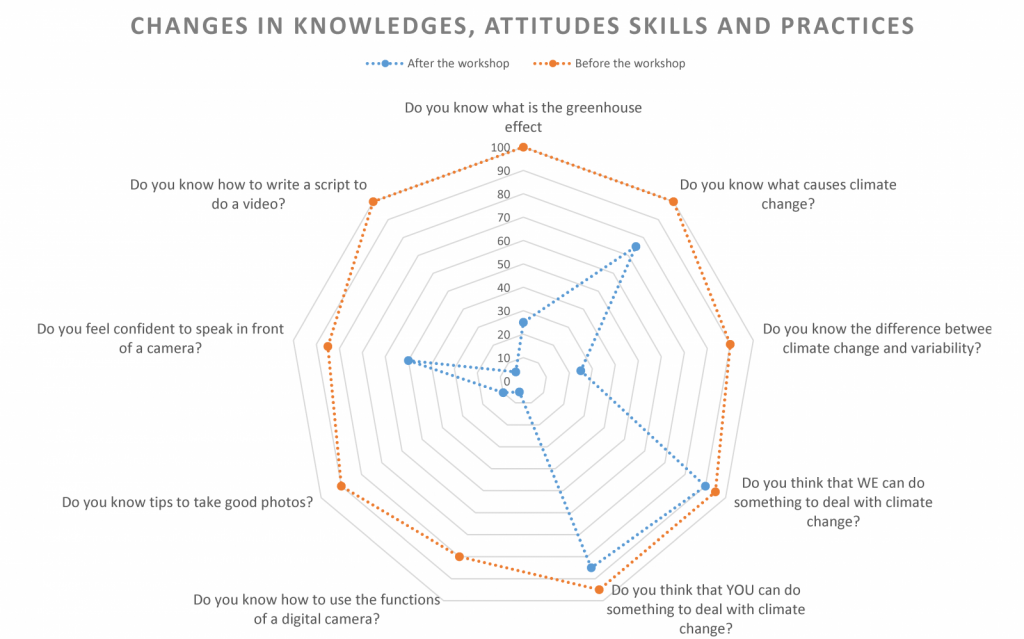
See the photos from the workshop
José Luis Urrea is communications officer for CCAFS Latin America, and led the workshop.
Special thanks to Sayra Taleno and Amilcar Aguilar from CATIE, for its valuable collaboration for the development of the workshop.

